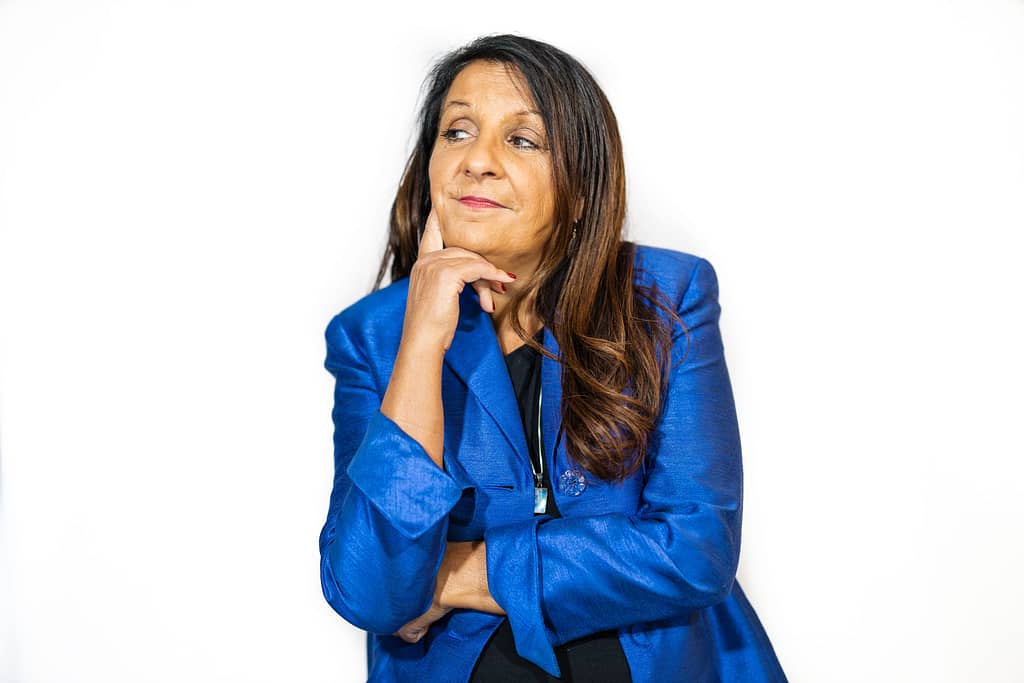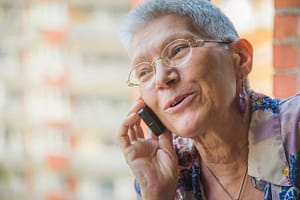Ep 12: Doctors Talk About What Happens to Women’s Healthcare Under ReTHUGliQan Abortion Bans – Part 2
Good God Almighty! Look at what is happening. All the havoc that is being created simply, because ReTHUGliQans are determined to shove down everyone’s throat their own religious bigotry, their own religion.
Frankly, if they don’t like the way we are in America, the pluralistic society where we have a diverse society, diverse religions, diverse ways of thinking and being and feeling and acting in life, well, heck, they should just go right on over to Russia, be where their good buddy Putin lives, or head on over to Saudi Arabia, where there is no religious freedom. Zippo. None.

But frankly, this is disgusting.
All of the fallout because of the religious intolerance and bigotry of the ReTHUGliQans.
Before we get to some of the doctors telling more of
the story regarding what happens to women’s health care under abortion bans, I’m going to read you a couple of headlines just to kind of kick this session off.
Washington Post: Abortion Bans Complicate Access to Drugs For Cancer, Arthritis, Even Ulcers.
You’ve got to be kidding!
Reuters: State Abortion Bans Prevent Women From Getting Essential Medication.
And here’s one from CNN: Women With Chronic Conditions Struggle To Find Medications After Abortion Laws Limit Access.
This is outrageous!
It’s the fallout from religious bigotry.
It’s the fallout from misogyny.
It’s the fallout from failure to respect women’s autonomy.
To continue to tell the story of what happens to women’s health care under an abortion ban, I’m going to share more excerpts from interviews I had conducted with various doctors when I was the communications director for the ACLU of Georgia as part of the video series that we published titled Stop. The. Bans. American Physicians Speak Out. You can view all of the [email protected] as well as its YouTube account @ACLUofGA.
To kick off part two, we’re going to listen to Dr. Lealah as she tells us a little unknown fact about medication trials.
“I focus on care for women specifically, actually women living with HIV.
“We don’t have enough evidence about most medications in pregnancy because women who have the potential to get pregnant, who are pregnant, are almost universally excluded from trials on medications.
“And so there are lots of medications that are very necessary for many women in pregnancy that if you look deep in the data, there’s not actually great data saying for certain that it’s safe in pregnancy.
“But doctors and patients have to make a decision together about weighing the pros and cons and the knowns and unknowns of managing somebody’s medical conditions with a medication that we may not have a perfect amount of knowledge about.
“But if doctors are practicing medicine in a way where they are completely defensive about a fear of any possible fetal damage even if the woman is aware of that fetal damage, that possibility, and wants to take the medication, how is that going to impact how a doctor chooses to prescribe or manage patients?
“They can no longer do the thing that they and the patient decide is right for the patient because of fear that some court of law is going to say, ‘no, that’s not okay, that was dangerous and you’re going to jail.’”
Well, there’s nothing like having ReTHUGliQan Big Brother look over the shoulder of every physician and every patient, every woman, to determine whether we are adhering to their strict religious perspective on our individual personal health care.
We have to do something about this, because this is nuts!
Dr. Mindy, an OB/GYN who specializes in oncology, shared with me the reality of cancer and pregnancy.
“Sometimes when women have breast cancer, which is what I primarily focus in, people get pregnant, either planned or unplanned, and cancer can affect that.
“So we know that if someone is diagnosed with breast cancer early on in pregnancy that it may have impact on pregnancy outcomes.
“But at some point, at some cancers, people may need chemotherapy and chemotherapy can have effects on a pregnancy. And there are times where it may be medically important for someone not to carry a pregnancy so that they can get the appropriate care for their cancer.
“And these laws affect things like that.
“So that can affect not just the ability of someone to have access to this procedure, but that can affect their ability to have lifesaving treatments.
“However you feel about abortion, what gets lost in the conversations is the woman.
She spoke a whole lot of truth there. We have to return women as the central focus of any discussion period.
So now we’re going to hear from Dr. Melissa, an OB/GYN, who is going to talk with us about the detrimental effect that abortion bans have when a pregnancy simply doesn’t go as planned.
“The trouble with these bills and these laws is they don’t understand the difficult situations that pregnancy puts families into and puts women into.
“So a pregnancy is often happy time for many families. It’s what they are looking for.
“But for many women, the pregnancy often does not go the way they had planned.
“And those are the women that I take care of.
“So I take care of women who have a pregnancy that is complicated by very serious nominees. These are pregnancies that will not end in good news.
“But what we don’t talk about as a society is what happens when pregnancies go wrong, which happens more often than we’d like to talk about.
“And these are the patients that I take care of.
“Pregnancy is often a happy time, but there are times when a pregnancy seems to be going well and then all of a sudden in the middle of nowhere, your bag of water breaks.
“What is she going to do? And we know that in this situation, the pregnancy can’t continue.
“You can’t have a pregnancy without a bag of water, and she’s given the option.
“She asked me, ‘Doctor, what happened? What did I do?’
“It’s nobody’s fault.
“‘What can I do?’
“And I tell her she has a choice.
“She can continue to carry the pregnancy knowing that most likely is going to end with a miscarriage at an unpredictable time. That by having her bag of water broken, she could get infected, she could get very sick, or she can have an abortion.
“And she can make the difficult choice to end the pregnancy that she knows is not going to turn into the pregnancy she was hoping for.
“And by doing that, she will no longer put her own body at risk and wait for something terrible to happen, like getting terribly ill and save her own health and save her own life and save her fertility for the future.”
With each story, we realize more and more how critically important legal abortion care is.
Here to tell us another layer for our educational purpose is Dr.Eric, who is an emergency room physician.
“In the 25 years that I’ve been practicing emergency medicine, I can count on one hand the number of women that I’ve seen with complications of a safe legal abortion.
“Less than five in my 25 years.
“And so my concern is that if there’s an abortion ban, abortion is not going to stop.
“People are going to seek the abortions that they need for their personal reasons, someplace else, and they’re not going to be safe. They’re not going to be with skilled providers.
“And I’m going to see women who are bleeding, who are infected, who are in pain, whose fertility is at risk, whose lives are at risk, and who may not go on to live the fulfilling lives that they would otherwise have lived, or be able to take care of the kids that they already have or love the people that they already love.”
Dr. Nika, another OB/GYN with whom I had spoken, talks about how abortion care saves women’s lives.
“I mean, very concretely as a physician, again, I also take care of people who are living with HIV and people who have complex medical conditions.
“And to have to say to someone for whom pregnancy is life threatening that I, as a physician, can’t do the safer option, which is to end your pregnancy, is completely antithetical to being a physician.
“Again, it’s just the opposite.
“It goes against all of my training as someone who’s trying to prolong someone’s life and use and offer the lowest risk option.”
In this final segment of part two, we return to Dr. Elissa, who puts into an incredibly important context how we must think and act and talk about reproductive health care.
“I think that a very scary part of these bans is how they devalue women’s lives, and they devalue the fact that women are half of our society and they should be cared for and treated with the dignity and respect that they deserve.
“They should have access to clinicians without fear.
“They should not be in fear of choosing the right path forward for themselves and their families.”
Absolutely. This ends episode two of the three episodes in which doctors are speaking about what happens to women’s health care under these ReTHUGliQan abortion bans.
Thankfully, there are things that you and I can do right now to ensure that come January, these are stories of the past.
Between now and November 8, you and I, with our friends, family and coworkers, must work in the political arena to transform the situation with women’s health care.
It really is up to you and me, and we can really do this.
I provide numerous paint-by-number ways to do just that.
Episode 2 tells you how to get your head in the game.
Episode 3 tells you step-by-step how you can use your cell phone to help identify voters who cast their ballots for our Democratic candidates.
Episode 4, that gives you a paint-by-number program to turbo-boost a campaign’s momentum through putting out local yard signs, talking with those voters at their homes, then grabbing a quick video of them promoting our Democratic candidate.
Those videos get posted to social media, and bam, no excitement on the ground.
And finally, in episode 9, I give you the paint-by-number basic instruction on walking and talking to neighbors about our Democratic candidates.
Now, you just have to find one of those actions or more and do them as often as possible. That is how we participate to create the Big Blue Wave this November.
Thank you for reading.
Be sure to follow and like, rate and subscribe wherever you follow this podcast and of course, share it with your friends and your family.
And you can find me across social media @sassypoliticalcoach.
But for your Hell Hath No Fury swag – t shirt, ball cap and of course, to start your day with your coffee mug – head on over to Sassypoliticalcoach.com.
Now go out and make Hell Hath No Fury, our political rallying cry that helps to create the Big Blue Wave.
MUSIC
“Catch It” Music by Coma-Media from Pixabay
“Battle Percussion Jungle Powerful Show Heavy Music” Music by REDproductions from Pixabay
“Percussion Opener” Music by Stock_Studio from Pixabay
“Stomp” Music by amaksi from Pixabay
“Stomp and Claps Logo” Music by John_Sib from Pixabay
“War is Coming” Music by Musictown from Pixabay
































